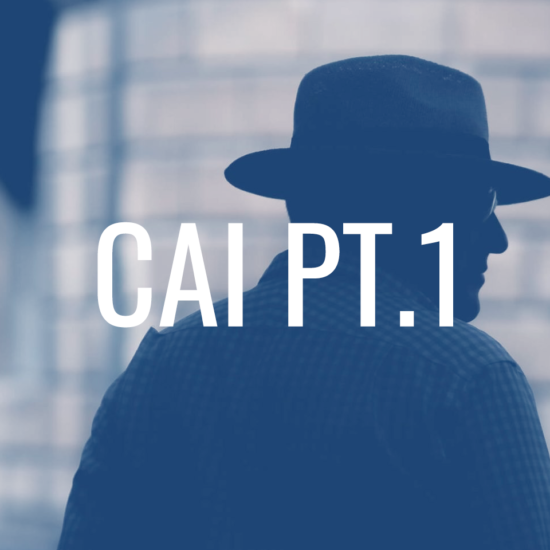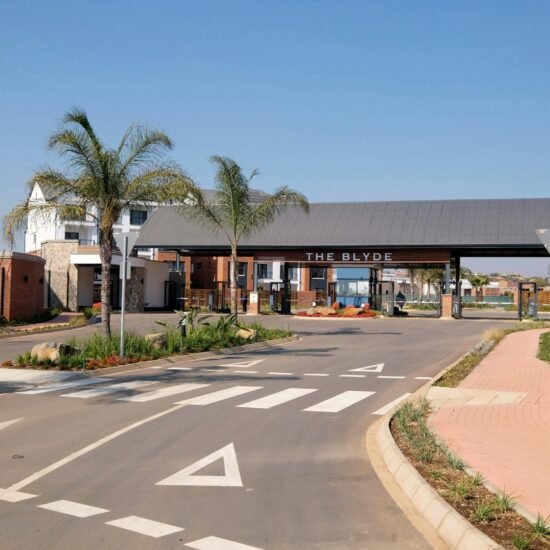
HOA Detective™ – May 27, 2025: Imagine a luxury condominium tower in a mid-sized North American city. It was constructed less than two decades ago and hailed at the time as a model of urban sophistication: glass, steel, premium finishes, and a marquee name on the design team.
As of 2025, the Association stakeholders find themselves confronted with a reserve study that quietly doubled the projected 30-year spending liabilities – from $15.5 million to over $31.5 million – in just two years. No spectacular engineering failure occurred. No new improvements were added. No catastrophic issues were suddenly discovered, so what happened?
A Troubling and Common Occurrence: The reserve study was produced by a firm that has been involved with the building since the beginning – first as technical design consultant during development – then as a warranty advisor, and for the last 15 years as a reserve a reserve study consultant who also provides ongoing consultations when a major maintenance and renewal project requires a technical advisor or project management.
A Full Employment Act for the Consultant: Unfortunately, this is not a hypothetical example. This essay is a real-life case study of how the reserve study profession – often viewed as neutral and cloaked in the mystique of technical engineering jargon – can devolve into a self-reinforcing echo chamber of soft corruption, baked-in conflicts, and structural opacity. And no one – neither the Board, nor management, nor the consultant – seems remotely concerned.
The Reserve Study Profession’s Blind Spot: The reserve study itself is supposed to be a financial forecast that attempts to predict the cost of long-term maintenance, and replacement of the common elements in a condominium or other type of CID. At the most basic level, a reserve study should be an impartial and objective, actuarial instrument that guides community association decision-makers through decades of predictable reserve fund accumulation known as the “reserve funding strategy.”
The objective of this planning exercise is to end up with a funding strategy that results in saving enough money to pay for major maintenance, renewal, and replacement of commonly owned assets when such assets reach the end of their service life –whether those assets are a multi-million-dollar roof, a complex array of HVAC equipment or several miles of roads with a bridge or two thrown in for good measure. With the possible exception of Canada, the reserve fund strategy outlined in 95% of all reserve studies does not equate to a capital replacement forecast, despite what some people would suggest.
To learn more about the pitfalls of cashflow funding see the April 2025 post on cashflow funding here: https://hoadetective.com/warning-this-reserve-study-uses-cash-flow-funding/
Not a Retirement Fund: The Association’s reserve fund should NOT be treated like a pension fund by the planning “expert” who is enlisted to guide the Board of Directors through decades of reserve planning decisions. Yet in practice, the profession is a Wild West environment lacking meaningful regulatory oversight or even strict professional ethical standards. Many reserve studies include opaque assumptions that lack explanation and optimistic, self-serving disclaimers. Entangled professional and personal relationships are often lurking behind the curtain of the Boardroom or the C-suite even in the most prominent management operations.
Lack of Meaningful Professional Standards: This situation exists primarily because the recognized standards that govern reserve studies in North America – most notably those promoted by CAI and allied trade bodies – largely ignore conflict of interest as a material ethical concern. Reserve study providers are not bound by the kind of fiduciary duties imposed on licensed investment advisors or independent auditors. Nor are they required to disclose prior roles that may compromise their objectivity.
A firm can serve as design consultant, maintenance advisor, litigation expert, and capital project planning forecaster – often for the same property – without raising a single red flag. In fact, these overlaps are routinely marketed as benefits: “We know your building best,” they say. “Trust us.”
But when the same company that designed your roof now projects that it will cost twice as much as a comparable roof on the building next door, with the full expectation that the consultant will be engaged to provide project management services when the roof is replace, the question must be asked: Who benefits the most by the relationship?
An Anatomy of Manipulation: In our case study, the consultant’s 2025 reserve study included the following characteristics:
- A 103% increase in total 30-year renewal liability compared to its own 2022 version, with no detailed explanation.
- No subtraction of recently completed projects, effectively double-counting liabilities.
- Bundled “soft costs” like project management and consulting fees baked into forecasts—fees that may flow back to the same firm or its preferred affiliates.
- Speculative backloading of high-cost projects two decades out, compounding assumptions with no described risk modeling.
- Minimal disclosure of the firm’s prior roles in the property’s development and past scopes.
When scored against an objectivity framework, the results are damning:
- Independence of Analyst: Compromised
- Disclosure of Prior Involvement: Minimal
- Justification for Forecasts: Absent
- Separation of Roles: Blended
- Governance Clarity: Obscured
- Duty of Client Loyalty: Absent
In short, the consultant operates as judge, jury, and contractor.
Management’s Role in Perpetuating the Problem: If this sounds like a governance failure, it is – but not just on the consultant’s side. HOA management professionals – whether internal or via third-party firms – have long turned a blind eye to these conflicts. Reserve studies are routinely treated as check-the-box exercises to secure budget approvals or justify dues increases.
The vendor is chosen not for independence, but for convenience, familiarity, or even back-scratching partnerships that provide mutual cover. In extreme cases, management companies engage in the ultimate over-reach by providing reserve study services to their gullible clients, sometimes going so far as forming a separate reserve study consulting business that itself is entangled within the ManCo.
In our case study, the HOA management team offered no resistance to the selection of a longtime vendor with clear financial entanglements. In fact, they celebrated the “continuity” and “deep knowledge” the consultant brought to the process, in another example of the PhD (Piled Higher & Deeper) business strategy.
No alternate bids were solicited. No peer review was commissioned or even the suggestion that a second-opinion may be a good idea. No forensic accounting has been performed in seventeen years. Instead. the Board, many of whom lack construction or financial expertise, has relied entirely on management and the consultant to guide them – without realizing they were being walked in a circle.
This real-life, ongoing example is not unusual. In many cases, HOA management firms explicitly discourage Boards from switching reserve study providers, citing “learning curves” or “format changes.” But the real reason may be simpler: a steady, predictable vendor makes life easier, even if the product delivered is ethically compromised or mathematically flawed.
The Rule, Not the Exception: This case study is not an isolated event. Other buildings examined by CIDA over the past 5-7 years have revealed similar patterns involving the same consultant, with many other Associations similarly entangled with a reserve study provider for a decade or more, all the while being aided and abetted by the accommodating ManCo.
The Industry Hidden Agenda: Reserve study manipulation doesn’t require fraud – it only requires convenience, apathy, and a veneer of authority. Manipulation of the reserve planning exercise for the benefit of the RS consulting firm is not a unique application of the “farming” of the client to cultivate additional revenue streams business practice. The reality is that the HOA management and service provider arena is full of companies that place their own financial interest ahead of the client in a classic breach of one of the most fundamental ethical principles, known as Client Loyalty.
Ethical Principle of Client Loyalty: Client loyalty is a foundational ethical principle in any profession involving advisory or fiduciary responsibilities. At its core, it refers to a professional’s duty to act in the best interest of their client, with honesty, transparency, and integrity. This includes:
- Avoiding conflicts of interest (or disclosing them fully when they exist)
- Providing objective, well-reasoned advice, free from external influence
- Maintaining confidentiality while promoting informed decision-making
- Prioritizing the client’s long-term welfare over short-term profits or vendor relationships
In professions like law, medicine, financial advising, and engineering, loyalty to the client is codified in professional standards and enforced through licensure or accreditation bodies. Reserve study (RS) providers, however, operate in a largely self-regulated industry with minimal ethical oversight, despite offering services that directly affect millions of dollars in homeowner dues and property value projections.
Improving the Reserve Study Profession: The reserve study profession must grow up. Below is an agenda that would bring much needed change to the reserve study profession:
1. Require Conflict of Interest Disclosure: Every reserve study should include a signed statement from the analyst disclosing prior engagements, financial relationships, or roles that could impair independence.
2. Require Separation of Functions: A firm should not be allowed to provide both consulting services and reserve forecasting for the same systems or scopes.
3. Require Peer Reviews: Independent second opinions should be normalized—especially for major liability increases.
4. Require Management Accountability: Managers who repeatedly recommend entangled vendors should face governance review, or lose professional accreditation.
5. Require Client Loyalty: Reserve study professionals must be held to the same standard of client loyalty of all credible professional disciplines, including the duty to place the interest of the client above the financial interests of the consultant.
6. Restrict Ancillary Services: Like home inspectors, reserve study professionals should be barred from providing services which are ancillary to the reserve study process for a meaningful period to prevent the reserve study engagement from becoming a gateway to future revenue streams.
Final Thoughts: The HOA ecosystem depends on trust. This trust must be earned, not assumed. When a reserve study provider is allowed to operate with a hidden agenda and zero disclosure, that trust is broken. When HOA management professionals ignore or enable those practices, they become complicit in the erosion of financial stewardship.
Homeowners deserve better. They deserve reserve studies that illuminate, not obscure, the road ahead. It’s time to shine a light on the cozy corners of this industry and say what should have been obvious all along: a forecast written by someone who profits from the outcome is not a forecast. It’s a sales pitch.
Because You’re Buying More Than a Home!







